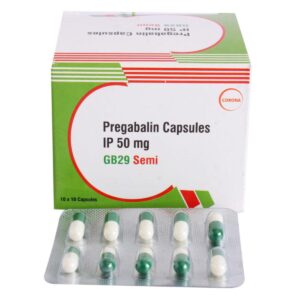FOLIC ACID + CARBONYL IRON + NOT AVAILABLE + ASCORBATE
Folic Acid: Folic acid, also known as vitamin B9, is a synthetic form of the water-soluble vitamin folate. It is an essential nutrient that is necessary for the production and maintenance of new cells, particularly red blood cells. Folic acid is commonly used as a supplement and medication to treat or prevent certain types of anemia, as well as to support the healthy growth and development of the fetus during pregnancy.
Folic acid works by helping the body produce and maintain new cells. It plays a vital role in DNA synthesis, amino acid metabolism, and cell division. By supporting these processes, folic acid aids in the formation of red blood cells and other necessary cellular components.
The recommended dose of folic acid varies depending on the individual and the purpose of its use. For most adults, the recommended daily intake is 400 micrograms (mcg) per day. Pregnant women typically need higher doses, often around 600-800 mcg per day, as the body requires additional folic acid during pregnancy to support fetal development.
While folic acid is generally safe and well-tolerated, some individuals may experience side effects. Common side effects include gastrointestinal symptoms such as nausea, bloating, and flatulence. In rare cases, allergic reactions may occur, which could manifest as rash, itching, swelling, or severe dizziness.
It is important to note that excessive doses of folic acid can mask vitamin B12 deficiency, making it difficult to diagnose. In individuals with untreated vitamin B12 deficiency, high levels of folic acid can lead to neurological damage.
Folic acid is widely available in supplement form, both as stand-alone tablets and in combination with other vitamins and minerals. It is also found naturally in many foods such as leafy green vegetables, beans, citrus fruits, and fortified grains and cereals. As with any medication or supplement, it is recommended to consult a healthcare professional before initiating or making changes to folic acid supplementation.
Carbonyl Iron: Carbonyl Iron is an oral iron supplement used to treat iron deficiency anemia. It is a form of elemental iron that is easily absorbed by the body.
The mechanism of action of Carbonyl Iron involves replenishing iron stores in the body. Iron is an essential mineral that plays a crucial role in the production of hemoglobin, the oxygen-carrying component of red blood cells. Iron deficiency can lead to a decrease in hemoglobin levels, causing anemia. Carbonyl Iron supplies the body with the necessary iron to support the production of healthy red blood cells.
The dose of Carbonyl Iron varies depending on the severity of the iron deficiency and the individual’s response to treatment. It is typically recommended to take one tablet (equivalent to 50-60 mg of elemental iron) once or twice a day, with or without food. It is important to follow the dosage instructions provided by a healthcare professional.
Common side effects of Carbonyl Iron may include gastrointestinal symptoms such as constipation, diarrhea, nausea, stomach cramps, and dark or green-colored stools. These side effects are usually mild and can be minimized by taking the supplement with food. In rare cases, allergic reactions may occur, which require immediate medical attention. It is also worth noting that iron supplementation can sometimes cause the stools to appear black, which is a harmless side effect caused by the iron itself.
Although Carbonyl Iron is generally considered safe, it is recommended to consult a healthcare professional before starting any iron supplementation regimen, especially in individuals with underlying health conditions or taking other medications.
Not Available: I’m sorry, but “Not Available” is not a specific drug name. This request is too vague for me to provide you with accurate information. Please provide the name of a specific drug, and I’ll be happy to provide you with the requested details.
Ascorbate: The drug Ascorbate, also known as Vitamin C, is a naturally occurring compound that is essential for human health. It is used to prevent or treat vitamin C deficiency, as well as for various other medical conditions.
Ascorbate works as an antioxidant, which means it helps protect cells from damage caused by free radicals. It also plays a crucial role in collagen synthesis, neurotransmitter production, and immune system function. Additionally, it enhances iron absorption from plant-based sources.
The dose of Ascorbate varies depending on the individual’s age, health condition, and the severity of the deficiency. For adults, the recommended daily intake is around 75-90mg for women and 90-120mg for men. However, higher doses are often used in certain situations, such as during illness or stress.
While Ascorbate is generally safe, high doses can cause gastrointestinal side effects such as diarrhea, nausea, and stomach cramps. In rare cases, individuals may experience allergic reactions, including rash, itching, or swelling. Long-term use of very high doses (over 2,000mg per day) may increase the risk of kidney stones.
It is worth noting that Ascorbate can interact with certain medications, including anticoagulants, aluminium-containing antacids, and certain cancer medications. Therefore, it is important to inform your healthcare provider about any medications you are taking before starting Ascorbate.
Overall, Ascorbate is an important nutrient that plays a vital role in human health. It is primarily used to prevent or treat vitamin C deficiency, but its antioxidant properties and other functions make it a valuable supplement for various health conditions.

